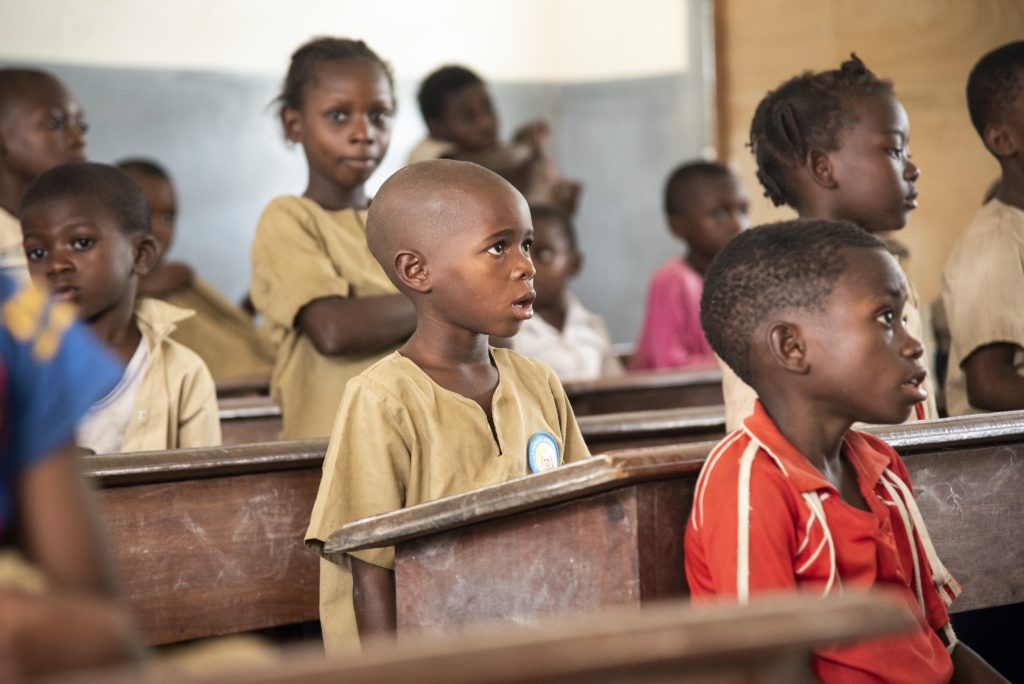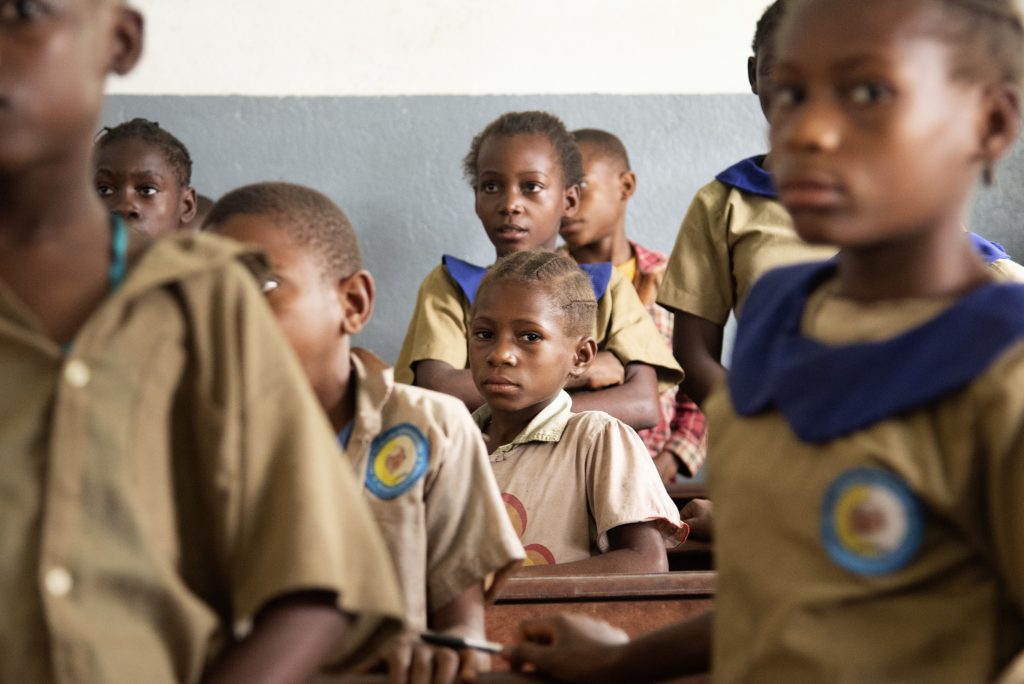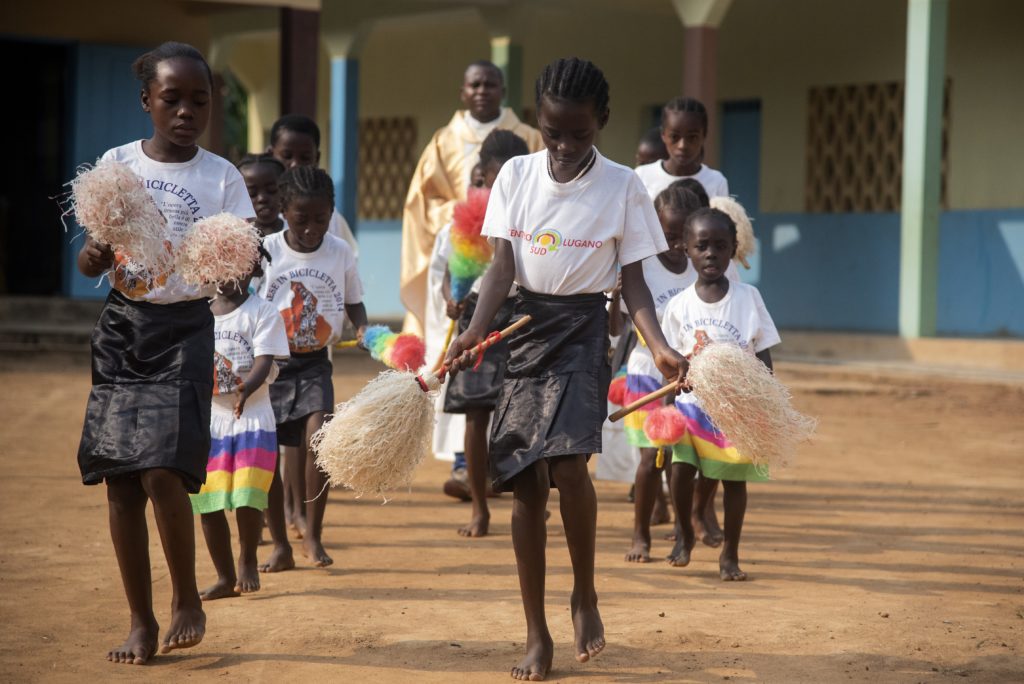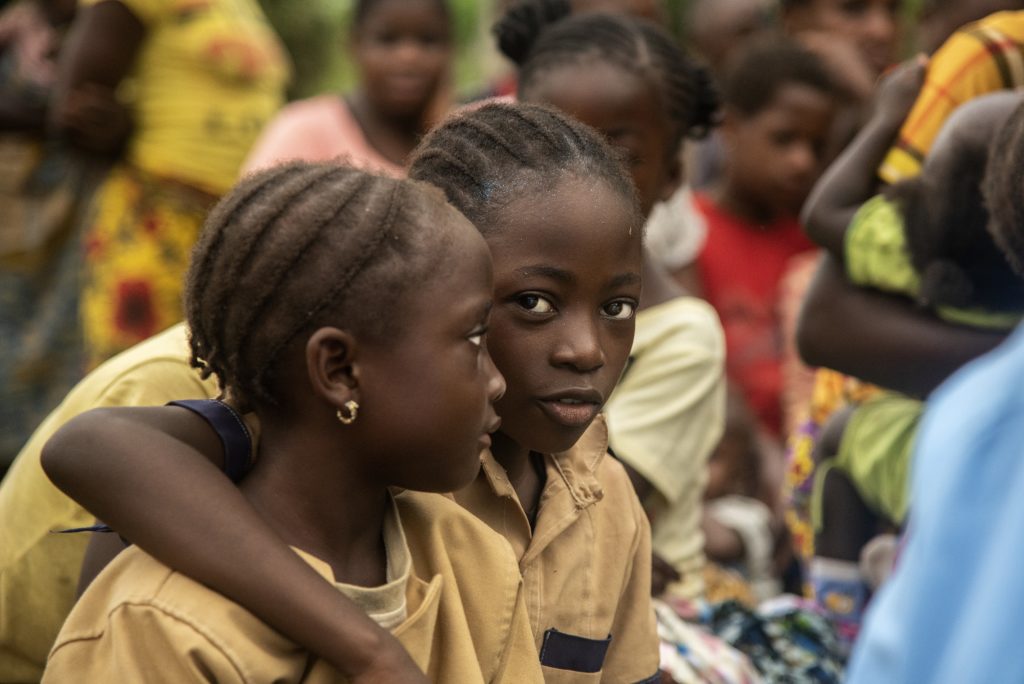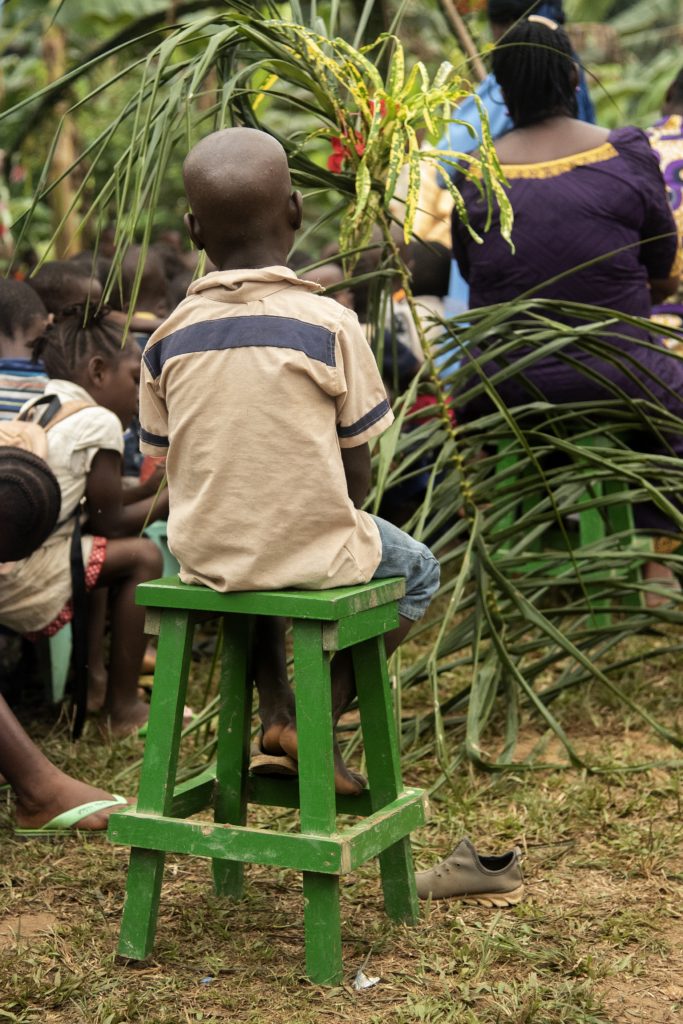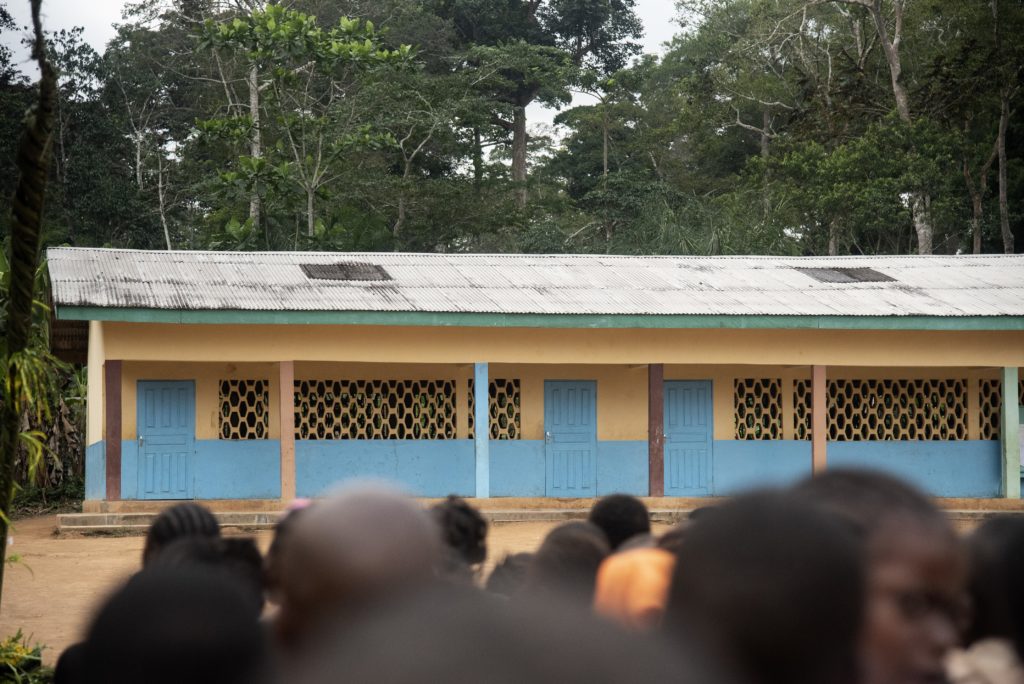Sembé – Sangha Region, Republic of the Congo
Education and food in the equatorial forest
The intervention area is the Sembé District, located in the thick of Congo Brazzaville’s equatorial forest, where Via Pacis has built the Don Domenico Pincelli Health Centre.
Aim
The aim of the project is to provide primary education for the indigenous population (the majority of whom are Bantu, with pygmies in the minority and withdrawn to the forest) and to give them a better chance for the future. Sister Rita shares: “When we went to certain villages, we asked the pygmies: what do you expect from us? With surprise, they told us: teach us to pray like you, instruct us and teach our children to write.”
The retreat of the pygmy population into the forest, driven by poverty and poor education, compromises the future of thousands of children, who are culturally and economically discriminated against. Education immediately emerged as an absolute priority to support the social development of the population.
In recent years, Via Pacis has built three masonry schools, welcoming more than 500 children without distinction of ethnicity.
To date, these are the only schools where the pygmies in the area can train and experience integration between Bantu and Pygmies.
The primary objective of the project is to educate and train the population so that they can improve their living conditions; the secondary objective is to provide a safe meal for all children from extremely poor families.
The pupils receive rice, flour, bread and drinkable water every day. The children arrive at school on an empty stomach and by mid-morning are not only hungry but also lack the strength to concentrate and learn.
This is why it was decided to intervene with support for both education and nutrition.
Beneficiaries
The majority of the area’s indigenous population live in igloo-shaped huts made of leaves, surviving by hunting and gathering wild fruits. Food resources are increasingly scarce and literacy rates are low.
The school activities envisaged by the project are aimed at the entire population of Sembé, with children as the main target group. Expected impacts include increased self-esteem and awareness among the pygmy population, and greater sharing between pygmy and Bantu ethnic groups.
Project costs
With just 50 cents a day, you can help a child attending school by providing a basic daily meal: rice, flour, bread and drinkable water. With 15 euros per month you help a child to go to school and eat.
| Number of children | Cost per 1 week | Cost per 1 month | Cost per 1 year |
| 1 | € 3,50 | € 15,00 | € 182,50 |
| 2 | € 7,00 | € 30,00 | € 365,00 |
| 5 | € 17,50 | € 75,00 | € 912,50 |
| 10 | € 35,00 | € 150,00 | €1.825,00 |
| … | … | … | … |



